Sustaining individuals and communities
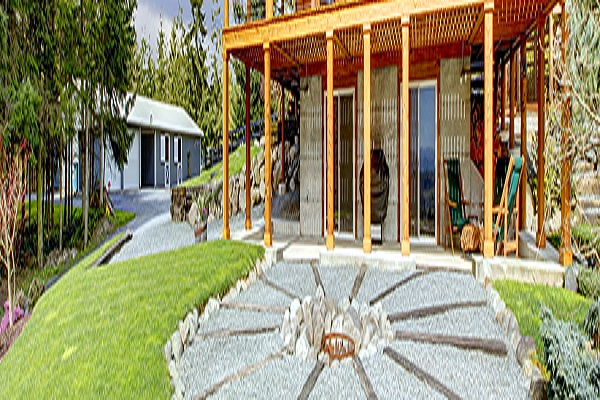
Backyards have become a true extension of the home. When properly landscaped, a backyard will provide additional outdoor living space where you can spend time with family and friends. Backyards have become areas for recreation as well as relaxation. And many amenities that used to be just for the indoors, such as fireplaces and fully equipped kitchens, are finding their way into backyard decorating ideas.
Read More →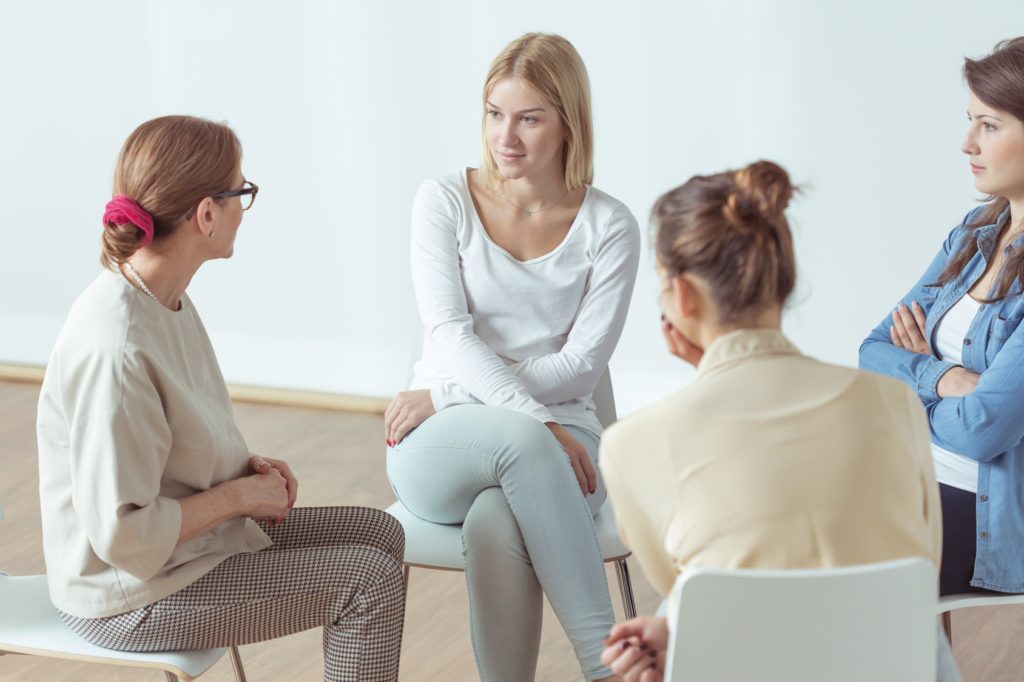
Mindful listening is a form of deep listening which encompasses listening with our whole body. Many of us, without realising it, don’t listen fully. We tend to think about what we are going to say next. We make judgements. We offer solutions. And sometimes, we try to divert the conversation onto something we want to discuss.
We all want to feel heard. When someone truly listens, it validates our feelings and demonstrates genuine caring and interest. It helps us feel okay about who we are and what we are experiencing in a way that offering someone a solution rarely does.
Read More →
A martial artist once asked Bruce Lee to teach him all he knew about martial arts. Bruce held up two cups filled with liquid and said, “The first cup represents all of your knowledge about martial arts. The second cup represents all of my knowledge about martial arts. If you want to fill your cup with my knowledge, you must first empty your cup of your knowledge.”
To create a life you love, find solutions to problems or discover your life calling, you need to ’empty your cup’ by quietening the left hemisphere of your brain. The left hemisphere is the logical, analytical part of the brain that processes information sequentially. Give this part of your brain a problem, and it will work on finding a practical solution for you. The brain is a beautiful tool. However, if you don’t know what you want or don’t know how to create what you wish, logic, reason, and analysis can have you going around and around in circles. This can lead to feelings of frustration or uncertainty, and that’s when it sometimes gets too hard, and we settle for what is.
Read More →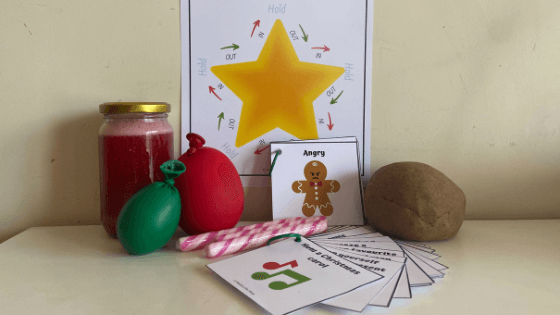
Christmas can be challenging for kiddos, especially for our more sensitive little people – toddlers and preschoolers, kids who experience anxiety, those who struggle with emotion regulation, and those with sensory processing difficulties and special needs. Christmas can be hugely overwhelming for many of our little ones.
And, of course, I created the Mindfulness for Children to help you set up a calming, quiet space for your kids and to teach them how to self-regulate when they experience big emotions. But Christmas, with its often over-the-top sensory experiences and extra social expectations and obligations, can bring its unique challenges. And I’m frequently asked – what can I do when we’re not in the house and can’t use our calm down space? How do I help my child then?
So I’ve put together something special to help your kids (and you!) manage some of those BIG feelings that come up more often at Christmas. Mindfulness for Children. This kit is designed to support your child to process their big emotions during the holiday season. It contains Christmas-themed activities and resources that your child will love to use, AND it’s a bit smaller than the original calm-down kit because it’s designed to be more portable.
Read More →
Teenagers face unique challenges, from academic pressure to social media distractions. Teaching them mindfulness can be particularly helpful in managing stress and anxiety.
Read More →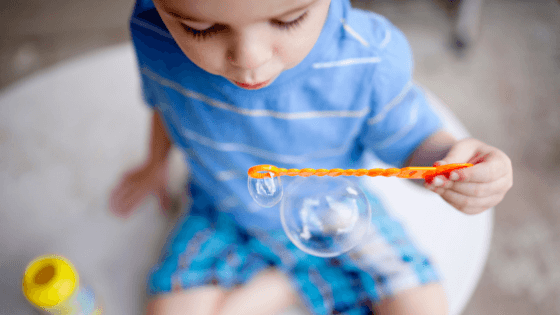
Mindfulness for toddlers is something I get asked about often. In fact, some variation of, “How do I teach my toddler/baby/preschooler mindfulness?” is probably one of the most frequently asked questions I receive. And it always makes me smile a little. Not because there’s anything wrong with the question – I happen to think it’s a great question. But I also happen to think we’re asking it the wrong way around!
Because toddlers actually have a lot to teach us about mindfulness. We’re often just too busy to pay attention to the lesson.
You see, toddlers are naturally pretty mindful already. Sure, mindfulness for toddlers looks different to mindfulness for adults, or even for older children. But if you’ve spent any amount of time with one recently, then you’ve likely already witnessed their mindfulness in action. You’d know that they’re curious, and they love to explore everything. That they like to take their time, savour experiences, feel emotions fully (and with passion!), and they notice everything (even when you don’t want them to). They delight in the simple things and living in the moment is the only thing they know how to do.
Read More →
This week is Mental Health Week here in Australia. And on October 10, we celebrate World Mental Health Day. This is an international day dedicated to raising awareness of mental health issues and reducing the stigma associated with these debilitating illnesses.
Mental health, but particularly youth mental health, is something I’m very passionate about. My entire career as a psychologist has been spent working in mental health. I have seen first hand, the damage mental illness can have on young people and their families.
But I have also seen the positive relationship between mindfulness and mental health. I’ve seen the powerful effects of mindfulness. And the research agrees with me. Mindfulness build healthy minds. Which is of course, why I started Mindful Little Minds! I believe that teaching kids mindfulness skills can have a hugely beneficial impact on rates of mental illness in children and can drastically improve their mental wellbeing.
So just in case you need more reasons to practice mindfulness with your kids, here are 6 ways mindfulness can protect, support, and improve your child’s mental health.
Read More →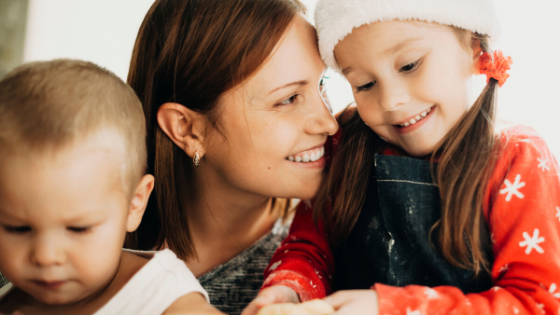
So I don’t want you to panic….but Christmas is less than 6 weeks away. And…December 1st is only 2 weeks away. You know what that means, right?
Well, Christmas is coming of course. But it’s also time to start thinking about your advent calendar, if you’re planning one. Now I love advent calendars. I love the excitement and anticipation they create in the lead up to Christmas day. And I love watching my kids excited little faces each day when they open up the calendar to discover what’s inside.
But I have also found them a little problematic in previous years. For example, when my oldest two children were still very young, we tried the store bought, chocolate per day type of advent calendar. But that didn’t feel particularly meaningful for our family.
So then we tried creating our own advent calendar and including a small treat or trinket each day, like a mini candy cane, a sticker, or stamp or small toy. But I wasn’t a fan of all the tiny plastic things we accumulated when we did this. And again, it didn’t feel meaningful for us.
So next we moved to an activity based advent calendar, which seemed like a better fit. I’m all about shared experiences over things for the sake of things. And that worked well for a little while. But eventually, it started to get on top of us. We would inevitably try to do too much in the name of Christmas fun. Activities became expensive, and time consuming and elaborate and after a full day of work we would just be too damn tired to do yet another Christmas craft. So that kind of all fell apart too.
Read More →
We all want our kids to be happy and healthy, right?! But research tells us that right now, our children are actually more stressed than ever. They are living in a world that expects more of them than it ever has. And it shows. Difficulties like depression, anxiety, ADHD and behaviour problems are on the rise. Our children are struggling.
But meditation can help. And this Thursday May 21st is World Meditation Day. So what better time is there to talk about meditation for children (and its amazing benefits)?!
What are the benefits? Well, studies suggest that meditation can help children develop a range of pro social behaviours. Things like improved empathy, better self control, less aggression and improved attention. It’s also been found to help with difficulties such as anxiety, depression, stress, ADHD, and low self esteem. Sounds like the perfect antidote doesn’t it?!
Yeah. It is! So let’s talk about why your child should be meditating and how to get started.
Read More →
I recently shared a post on social media about the language parents use when communicating with children about their emotions. In the post, I recommended that parents avoid telling their kids that their actions “make” them feel sad (or happy, or angry or…well…you get the drift). And it caused a bit of a stir. Many people who commented on the post believed that using this language was teaching their kids empathy. They were surprised to learn that I didn’t agree. And they were left wondering how to teach kids empathy, if that wasn’t it.
So let me explain. Here’s how we really teach kids empathy.
Read More →